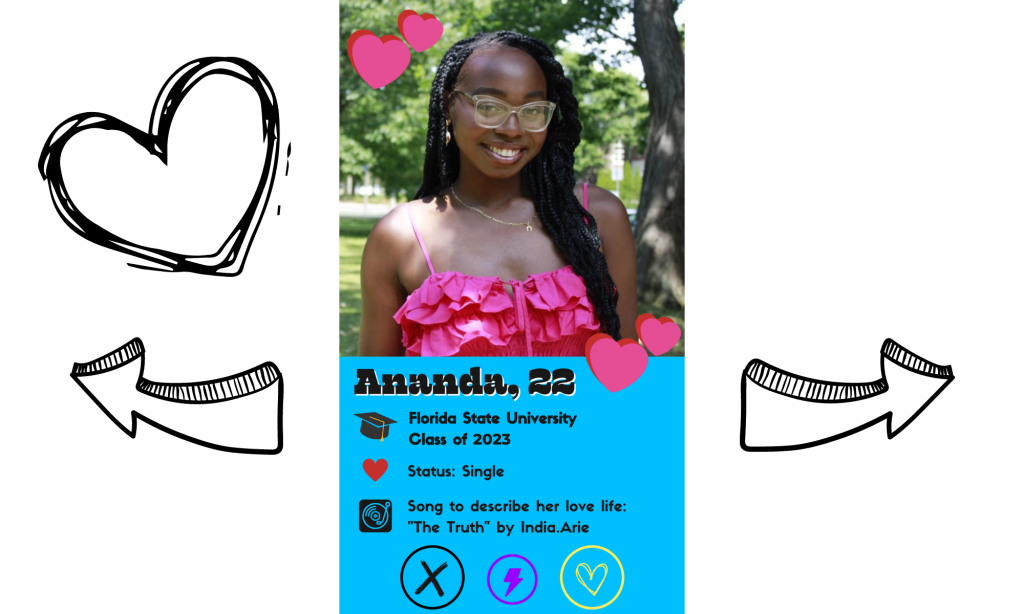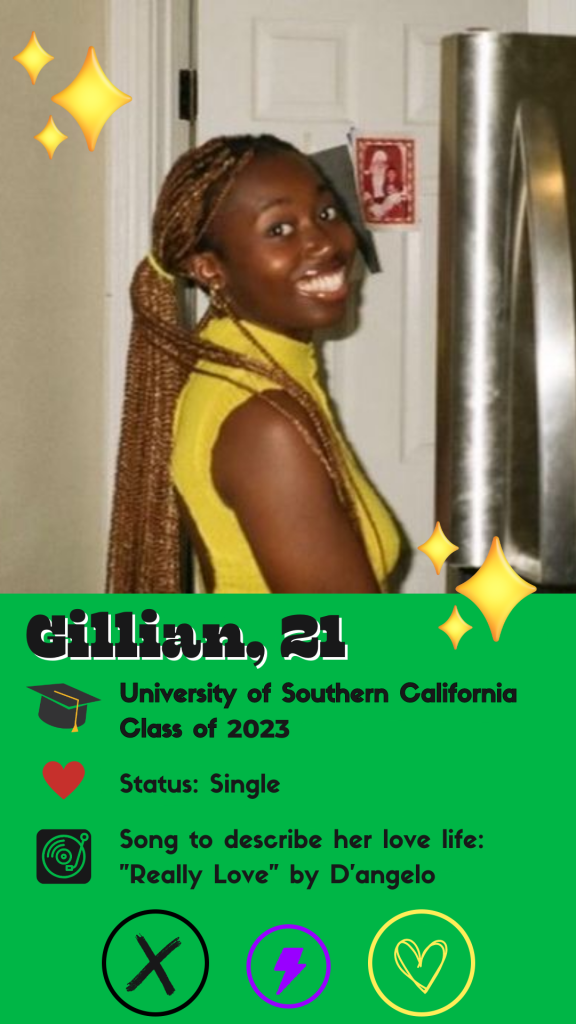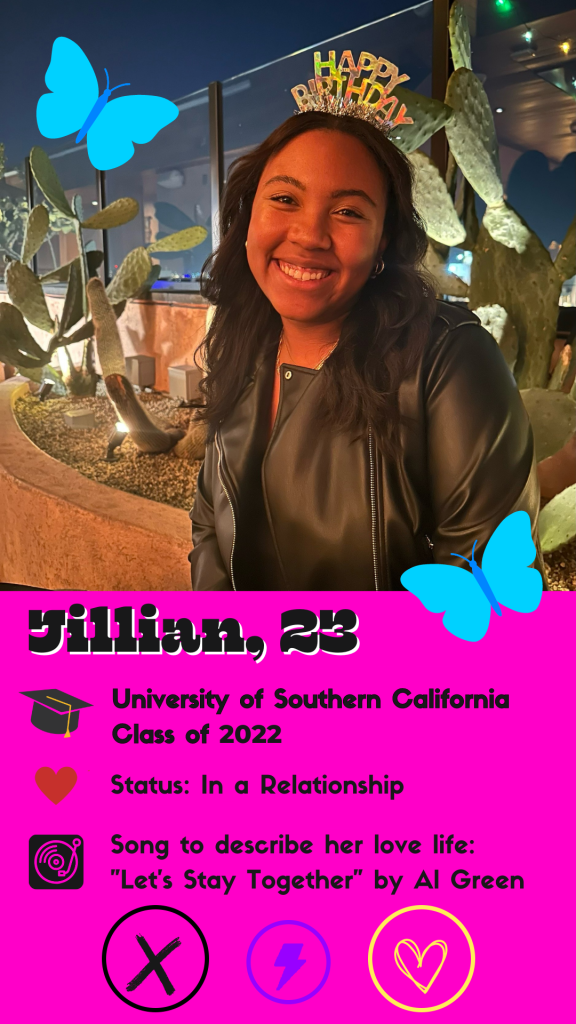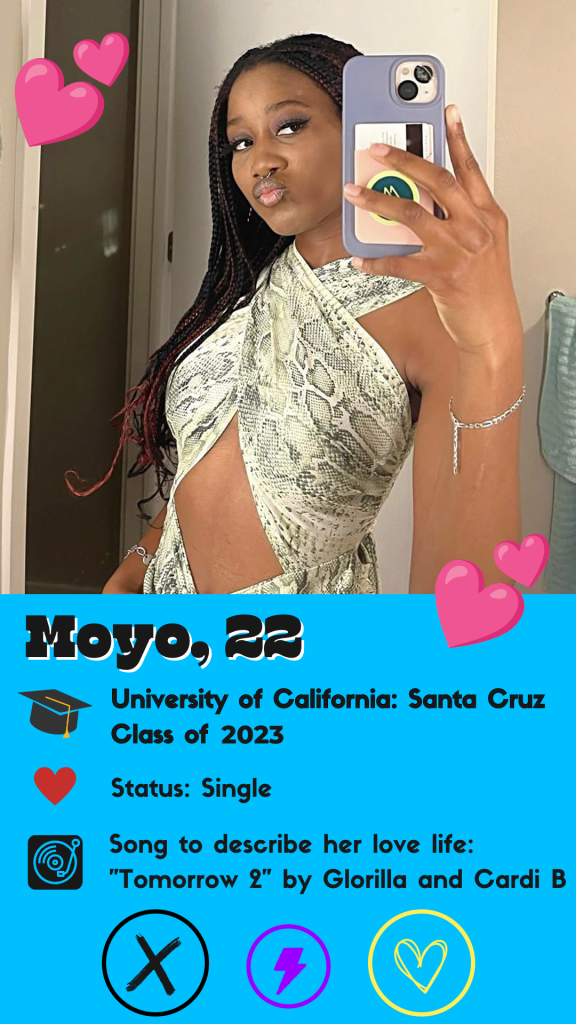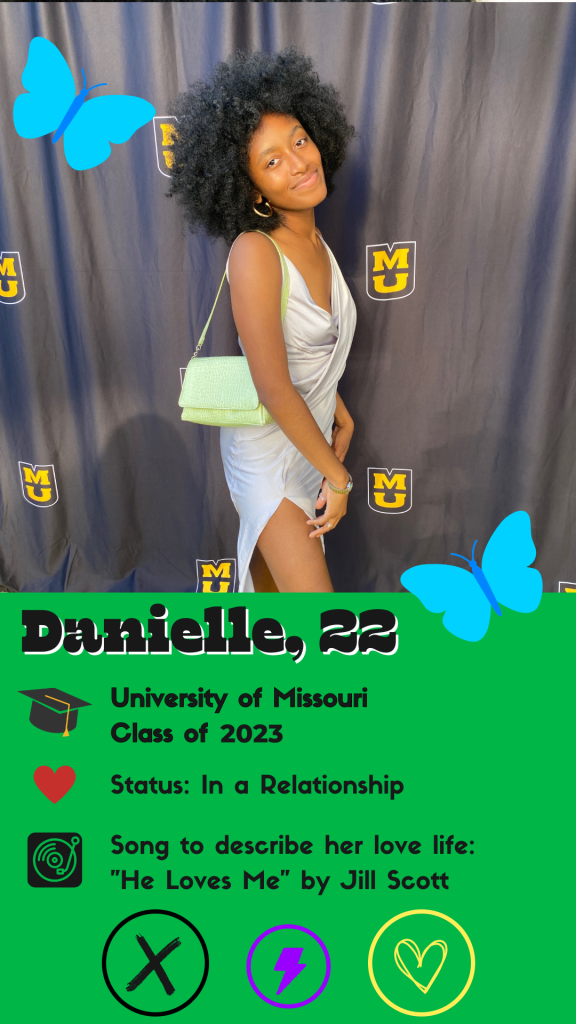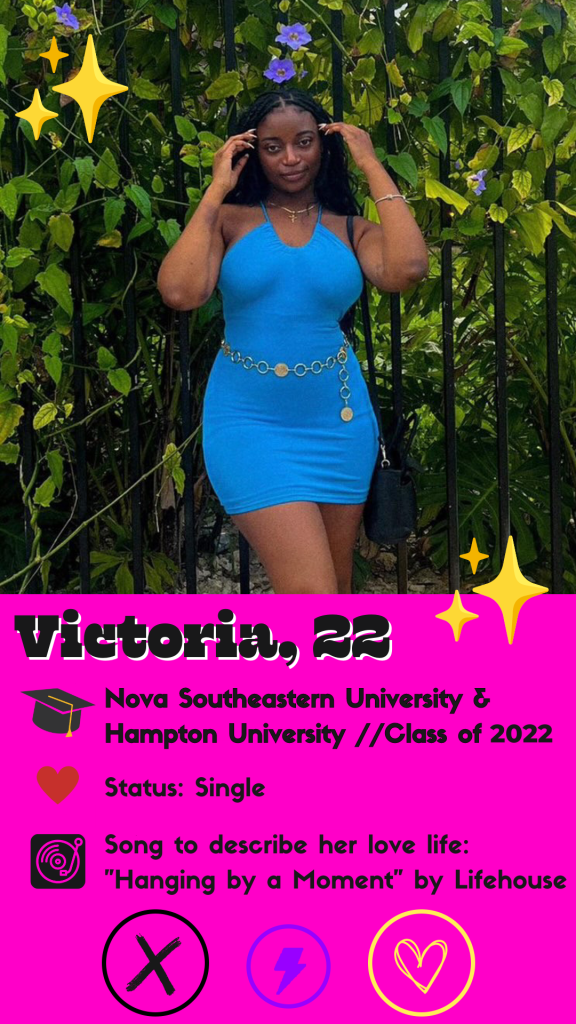By: Marlize Duncan
Dating is hard.
Being a Black woman and dating at a predominantly white institution is even harder – I’ve done it.
Similarly to my peers, I wanted to date Black men. It makes sense when Black women are the least likely to marry outside of their race. But Black women almost always outnumber Black men at universities. In a 2018 study by the National Center for Education Statistics, about a third of Black men were enrolled in college, but Black women beat them out with a 41 percent enrollment rate.
Now imagine trying to date in an environment like that.
Knowing that the ups and downs of college dating aren’t just shared between me and my friends, I had to see how other Black women were faring at PWI campuses across the United States.

College campuses come with stereotypes like partying and nepo babies, but in the world of dating what comes up most in conversation is hookup culture. Rather than being in a serious relationship or going on dates, women noticed that their peers were looking for ways to skip that part and go straight in the sheets instead.
For Jillian Carroll, a recent graduate from the University of Southern California, “hookup culture” was one of the first things she noticed when she started dating in college.
“It was, ‘Oh, you’re trying to come to my bedroom?’ Well, that’s not really a date. Your bedroom is not a date,” said Carroll. “I was just tired of trying to look for something that feels like it’s not necessarily there.”
Ananda York, a senior at Florida State University also noted how hookup culture permeates her campus, and that young men, specifically Black men, aren’t looking for a serious relationship. Many of her white peers, though, are in committed relationships – one of them is even engaged.
“I feel like the experience of dating at a PWI for white kids is extremely different, probably because there’s more white people to choose from,” York said. “[You’re] more likely to find a white guy that [does] care about being in a serious relationship. They want to find a wife.”

It almost seems obvious that PWIs would have smaller populations of Black students. To put it in perspective, in 2019 only 12.7% of the almost 17 million fall undergrads were Black. This includes Historically Black Colleges and Universities meaning that the number is even lower for PWIs. In many cases, universities’ Black student populations fall under 10 percent.
This shows a bit of a disadvantage when Black women are looking for a Black partner on campus. Gillian Allou, a senior at the University of Southern California, only dates people of color and has noticed that her peers with white partners had a lot of options and success.
“Most [white students] are single for maybe a few months, and then it’s super easy for them to find relationships whether on dating apps or naturally,” Allou said. “My non-Black POC friends who are willing to date white people also go through relationships like this.”
At the University of Missouri, or Mizzou, senior Danielle Hardy describes the Black dating scene as “slim pickings” because of segregated social groups and lack of advertisement for Black events. The population being small is coupled with few opportunities to connect. This has turned Hardy off from trying to date on her campus.
“It’s like a big high school. You’ll find out if this person is dating that person, or this person has been with this girl and this girl, and then it gets messy,” Hardy said. “I don’t know if I want everyone to know my business because eventually if I break up with this person, they’re gonna be with the girl in my class.”

Black women want to date the Black men on their campuses. Movies like “Love and Basketball” and “The Best Man” created expectations that Black love can exist in these spaces. Leah Donnella, an editor at NPR, notes how difficult this can be for Black students.
“It puts this incredible weirdness and pressure on this tiny group of people,” Donnella said. “Take any group of 10 people, and [say], ‘Can I date someone in that group?’ The answer is probably, ‘No.’ That’s not enough people to find someone who is a partner.”
That said, there was the common observation that Black men were in more interracial relationships, or more open to them, than Black women. Moyo Bakare, a senior at the University of California, Santa Cruz, found that the Black men on her campus preferred to date non-Black women.
“There’s so few Black people like me who actually want to be with me, so that’s kind of hard,” Bakare said. “To think I just have to be with the [white] people I see around me all the time? No. I want to be able to relate with somebody completely. Culturally.”
Julie Omole, the founder and CEO of matchmaking company Eli Simone, explains that there’s a cultural expectation that Black women should have Black partners.
“That is the conundrum that Black women have. If we are only looking at Black men, and Black men have decided, ‘I’m open to the whole pie,” Omole said, “‘I don’t have to date Black women anymore. I’m open to Latina… Asian, white, Greek, whatever,’ and other races are attracted to Black men. Go figure. But when it comes to a Black woman, we don’t get that same consideration.”

Omole continued by saying that many matchmakers’ male clients will create lists of races “that will specifically exclude Black women, like 99.9% of the time,” and urges Black women to broaden their horizons, especially in college. Bakare ultimately learned, after some successful dates, that if she really wanted to be on the dating market she was going to have to look beyond her Black peers.
“I had to open myself up to that. I think when I started [college], I didn’t really find [white men] attractive,” Bakare said. “But then as I started living with them, I started to.”
On the other hand, Black women who grew up around non-Black peers during their K-12 learning, are probably more open to dating non-Black people. This was the case for Carroll, who’s currently in an interracial relationship.
“I’ve gone to PWIs and private schools my entire life. So, I’ve always been the minority in the room,” Carroll said. “So that means when I started liking boys, there were maybe only two or three in my grade that looked like me.”
Interracial dating can be challenging, but starting at a predominantly white university and then transferring to a predominantly Black one can put dating in perspective. For Victoria Goddard, a recent graduate of Georgia State University who attended Nova Southeastern University for the first couple years of undergrad, the experiences of dating at both universities were completely different but rooted in something alarming.
“In South Florida, there’s a lot of fetishization because I guess [non-Black students] were not used to being around Black women or their idea of a Black woman is what they see in media, which is very over-sexualized or like [a] new experience,” Goddard said. “When I went to Georgia State in Atlanta, a very Black city, I was [also] being oversexualized.”

Reminder: Dating can go beyond the walls of the classroom, and it should. Parties seem to be one of the more popular options. Music. Hot singles. Alcohol. What more could the stereotypical college student want? But sometimes certain women get more attention than others, which can end in hurt feelings at the end of the night, or a compliment from a stranger can come across as outright disingenuous.
Then there are dating apps.
Swiping right for ‘yes’ and left for ‘no’ made finding a partner immensely easy, especially when you don’t particularly want to go out in the real world. Of the people surveyed for this piece, most were on one of “The Big Three”: Tinder, Hinge, or Bumble. Pew Research found that 48% of 18 to 29-year-olds have been on a dating app.
Socially, each app has been associated with a different experience. Tinder is for hookups, Bumble is for dating, and Hinge is for relationships. What they all have in common is that they are amazing for an ego boost.
There’s something thrilling about the instant gratification of a new match or message in the app.
“At one point in my life, I was a bit insecure. So, it was ‘I’m using this for male validation,’” Goddard said. “Once I get that validation, let me log off, I’m done.”
But between the ego boosts and hookups these apps can bring, many of the women felt that searching for something real and genuine on an app was quite difficult. This mutual feeling was reminiscent of the 2014 OkCupid study that found that Black women are considered the “least desirable” on dating apps.
Hardy even created a Tinder social experiment in her friend group to test this data. They wanted to know what matching as a Black woman looked like in comparison to a white woman in their town of Columbia, Missouri. So, they took one of their profiles and changed all of the photos to pictures of a white woman. All of the demographics and prompts stayed the same.
“We got so many hits. It was insane. I’d never seen that,” Hardy said. “We’re all pretty attractive Black women, and this basic a– looking white girl got so many messages, so many swipes, it was crazy.”

The fake profile received a ton of matches with Black men in the area – much more than they anticipated. The group even tried to send these men messages that you’d think would send them running for the hills just to see if all they needed to be was a pretty white girl online.
“We would have her say super out of pocket s–t about wanting mixed babies and all, and they ate it up. This is what we’re talking about,” Hardy said.
Donnella, the editor at NPR, makes it a point to mention that while Black women are hyperaware of every move they make on these apps – because the internet framed them as “least desirable” – it all comes down to racism.
Shocking.
“This puts responsibility or blame on Black women like there’s something about us that is not desirable, when I think the way it should be framed is that racism is informing the way people make decisions,” Donnella said. “So, it’s not about Black women not being desirable. It’s about people having racist ideas about who they should be partnered with, and that affecting who they’re swiping on.”
Dating isn’t always pretty. When the world, physical and digital, is doing the most to deter Black women from even trying to talk to a potential partner – we still get in the, “Hi, what’s your name?” or something much smoother.
And to all the Black women at PWIs who are going through it, let this serve as a testament that it’s probably not you, girl. It’s racism.
🧡

Watch this video to hear some of their personal dating stories!

